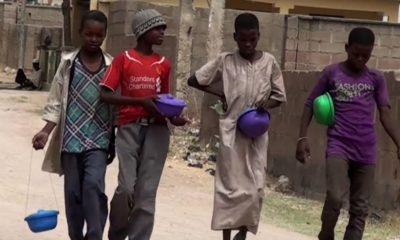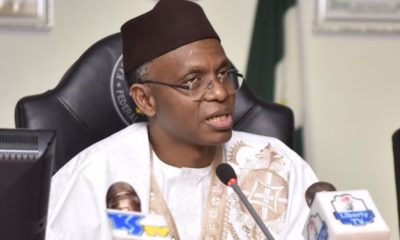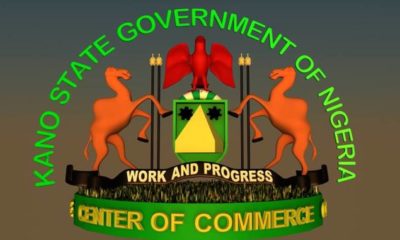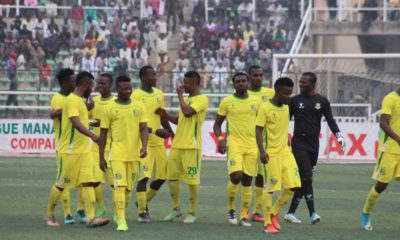Nigerian Newspapers
Kano, Kaduna, Yakassai oppose PIB, want minister’s powers checked
• Enugu, others seek special fund for oil communities
SOME northern elders and governors have expressed opposition to any passage of the Petroleum Industry Bill (PIB), which they say may further sow the seed of discord in the fragile polity.
Former Political Adviser to erstwhile President Shehu Shagari, Alhaji Tanko Yakassai, Kano State Governor Rabiu Musa Kwankwaso and his counterpart in Kaduna, Alhaji Mukhtar Ramalan Yero were among those who objected to the passage of the PIB at the North West forum organised by the Adhoc Committee of the House of Representatives on PIB in Kaduna Tuesday.
Meanwhile, the move by the House of Representatives to get input of Nigerians in the contentious PIB suffered a set back in the South East zone as Abia, Ebonyi and Imo states shunned the zonal public hearing which was concluded in Enugu yesterday.
In his presentation, Yakassai cautioned the oil producing states against clamouring for further oil revenue from the Federation Account through the PIB, saying such agitation is capable of disuniting the country.
Yakassai who claimed that the North singlehandedly promoted the unity of Nigeria with the resources found in the region right from pre-independence period to Civil War era, argued that those agitating for the passage of the PIB “should be their brothers’ keepers”.
Citing the recent paper presentation, he noted that “the revenue the northern region was contributing to the central purse is more than the revenue of the entire southern protectorate or southern region was contributing for a period of 34 years. And the expenditure of the central authority or Federal Government in those years was far less than financial contribution of the North. In the 1959/60 constitutions, the revenue allocation was based on derivation, only 50 per cent on tax and rent. Not on the entire revenue that accrued to the federation account. Today, the 13 per cent that was given is in respect of the entire revenue accruing into the federation, this should be noted.
“You help your brother at the time of need. When it is your turn your brother should help you. While we are making this major case against allocating specific revenue for the oil baring states, to me there is nothing like oil producing states. No state is producing oil. Oil in
Nigeria is found by the Almighty God, and not by the effort of anybody from Sokoto, or from Rivers or Bayelsa. So, we should be our brother’s keeper”.
Presenting the position of Kano State, Governor Kwankwaso explained that the continuous agitation by the South-South people for increase in revenue allocation has been to the detriment of the North whose region has been under intense pressure of poverty and disease.
He also pointed out that “for a long time, the effort towards reforming the petroleum sector was marred by challenges arising from high level corruption, conflicting interest of powerful political and economic blocs and general perception of insincere commitment on the side of the political elites”.
Urging the National Assembly against passing the PIB for sake of national unity, fairness, and equity, Kwankwaso said “we would like to inform the members that the major problem of the petroleum industry, and indeed the nation in general, is failure to get rid of corruption in our private and public lives.
“If we try to adjust by being patriotic, honest and prudent, Nigeria will be a different place to live.”
Supporting Kwankwaso’s view, Yero explained that “the host communities fund created by the PIB 2012 is the most controversial provision of the bill”, stressing that “the constitution of Nigeria recognises only three tiers of government and does so more particularly on revenue accruing to the Federation Account, to create a host communities fund therefore, will not only be tantamount to creating a fourth tier of government, but make provisions that will further alienate other parts of the country economically.”
Yero who was represented by the Permanent Secretary in the Ministry of Justice, Mrs. Hawa Dalhatu. He criticised the “excessive powers” given to the Minister of Petroleum Resources in the PIB, saying “there is therefore the need to subject the powers of the minister, especially in making the key appointments, to the approval of the Senate, as it is the practice with many critical national officers.”
At the conclusion of the hearing held in Enugu, only Enugu and Anambra state governments made inputs.
The Chairman of the Reps panel on PIB for South East zone, Mr. Muraina Ajibola, who announced that eight submissions were made, said only Enugu and Anambra states made inputs, adding that private individuals and organisation made six other submissions.
He added that though the two–day exercise had ended, the committee would be willing to receive submissions in writing from the three states governments in Abuja so as to have an “elaborate views on the issue as a way of solving the problem”.
Ajibola noted that the PIB is a serious issue that should not be neglected.
Enugu and Anambra states called for establishment of Petroleum Host Community Fund to include those communities hosting oil wells, pipelines and flow stations. Enugu added however, that 13 per cent derivation for oil-producing states is enough and should be maintained, subject to periodic revisions.
Presenting the position of the Anambra State government, Secretary to State Government, Oseloka Obaze, noted that the beneficiaries of the Petroleum Host Community Funds must include those communities where petroleum facilities passed through, stressing that they could be victims of oil spillage.
He said: “In Anambra State, we note that the envisaged refinery site at Nsugbe is removed from oil wells in Aguleri axis. We also envisage that the Onitsha metropolis will host oil jetties and tank farms in not too distant future. Invariably, the presence of these facilities in the territories of Anambra is bound to exert pressure on our infrastructure. Accordingly, we join with states that hold the common view that a definition of host community should be inserted into the bill to include communities that host petroleum facilities and these facilities shall include refineries, jetties, loading facilities, storage depots, pipelines and allied facilities.”
Obaze also called for amendment on section 293 of the bill which deals with duty to restore the environment, saying that the implication of the provision would invariably impose great and even unforeseen obligations on the state and local governments and essentially make the government vicariously liable for wanton acts of unknown miscreants and saboteurs.
The Enugu State Commissioner of Transport, Mr. Chukwuka Utazi, who presented the position of Enugu State government, called on the Federal Government to expand the frontiers of exploration to cover gas deposits in the state and not restricted to crude oil.
“In Enugu state, gas deposits abound in commercial quantities in the oil rich riverine communities of Igga, Ojjior, Ogurugu and Asaba in Uzo Uwani local council. In Nsukka council, we have gas deposits in Ehandiagu. All these gas deposits has been identified and capped and declared strategic reserve of the country, without any benefit to the host communities and the state. It is our expectation that the federal government should make policy statements to the effect that all these deposit should be explored and exploited”, he said.
————————————————————————————————————————-
Posted in Nigerian Newspapers. A DisNaija.Com network.
Source: Guardian Newspaper
DisNaija.Com publishes regular posts on Nigeria News, Nigerian Newspapers, Online Nigeria Gist.
Follow us on Twitter and Facebook.
Your Opinion Counts. Be sure To Leave A Comment, If You Have Any.
Please Like, Share or Tweet. Your Support Is Appreciated.

This Day
Military, Police Ring Abuja to Forestall Boko Haram Attack
•Deploy more personnel as army chief vows to wipe out terror group
•Security beefed up at N’Assembly
Deji Elumoye and Kingsley Nwezeh in Abuja
Abuja, Nigeria’s seat of power, is under a massive security cordon following threats of attacks by insurgents and the increasing wave of banditry in the contiguous states of Kaduna, Kogi, Nasarawa and Niger States, THISDAY’s investigation has revealed.
There has been a wave of kidnappings in the outskirts of the federal capital, notably Pegi, Tuganmaje and Kuje among others, which the police have battled in recent times.
The security situation in and around the Federal Capital Territory (FCT) was heightened by the pronouncement of the Niger State Governor, Mr. Sani Bello, that Boko Haram fighters who he said sacked 50 villages in the state and hoisted the terror group’s flag, were about two hours drive away from the FCT.
Security has also been beefed up at the National Assembly as operatives, yesterday, thoroughly screened every vehicle approaching the National Assembly complex in Abuja.
The deteriorating security situation nationwide prompted the National Chairman of the Peoples Democratic Party (PDP), Prince Uche Secondus, to warn that the 2023 general election may not hold, demanding the declaration of a state of emergency as well as the convocation of a national conference.
However, the Chief of Army Staff, Lt. Gen. Ibrahim Attahiru, yesterday restated the Nigerian Army’s determination to annihilate Boko Haram.
But the Governor of Katsina State, Hon. Bello Masari, cautioned against declaring a state of emergency, saying doing so isn’t the solution to combat the security challenges facing the country.
The security of the nation’s airports was also in focus yesterday as the Office of the National Security Adviser (ONSA) said there was no threat to them.
THISDAY’s investigations showed increased presence of troops, police, Nigerian Security and Civil Defence Corps (NSCDC) personnel and intelligence operatives at the three strategic entrances to the city notably, Keffi, Zuba and Gwagwalada.
More checkpoints were also mounted around Gwagwalada and Keffi.
THISDAY also observed increased intelligence deployment at the entrance and the borders of FCT with contiguous states.
Beyond the borders, there were more deployments and police patrols inside the city and increased intelligence deployments as well.
Security sources told THISDAY: “There are deployments here and there but they are routine. Alertness is key to a secure environment.”
It was also learnt that security agencies were involved in frenzied meetings throughout yesterday.
The meetings, coordinated by the office of the Chief of Defence Staff under the new joint operational strategy of the armed forces, were aimed at coordinating a joint response to possible threats of attack to the FCT.
“I understand the security teams have been meeting for some days now and if you look around you, you will notice that there are increasing patrols and numbers of security personnel. The threats are not been taken lightly,” a source said.
National Assembly workers, lawmakers and visitors also had a harrowing experience accessing the legislative complex due to heightened security in the area.
Security operatives thoroughly screened every vehicle approaching the National Assembly complex in Abuja, impeding both human and vehicular traffic.
The Sergeant-at-arm of the National Assembly and other security agencies supervised the operations, leading to huge traffic build-up inside the complex.
Legislative staff, visitors and lawmakers were seen patiently waiting for their cars to be searched so that they could go ahead with the business of the day.
Some staff and visitors at some point got tired of waiting and were seen alighting from their cars to trek from the gate to the complex.
Meanwhile, the ONSA has said there is no threat to the nation’s airports.
A statement by the Head of Strategic Communication, Mr. Zachari Usman, said the reports of threats to the airports were an internal correspondence of security threat assessment misconstrued as security threat to the airports.
PDP Demands State of Emergency
In a related development, the PDP National Chairman, Prince Uche Secondus, yesterday demanded the declaration of a state of emergency, warning that the 2023 general election might not hold if the federal government failed to tackle insecurity.
He called on the federal government to summon a national conference to address the spike in insecurity.
Secondus added that the national caucus of the party will meet today to discuss the state of the nation.
Addressing members of the National Executive Committee (NEC) in Abuja, Secondus said: “We are worried Abuja is not even safe. It is no longer politics. We got alert of plots to bomb and burn down our airports.
“We urge the federal government to declare a national state of emergency in security. There is the need to call a national conference to discuss the insecurity in the country.
“There may not be any election in 2023 in Nigeria due to insecurity. This government must listen to the people. The Buhari government should call a national confab to discuss security and state of the nation. It is no longer politics. This time we are not playing politics. Let’s keep politics aside and move the nation forward.”
He said the country had been grounded, regretting that there had been no matching response from the federal government.
Secondus said in the past, terrorism in the North was confined to the North-east, but with the report of Boko Haram occupying villages in Niger State, terrorism had spread to the North-central
“Herdsmen are also menacing in the West; gunmen causing havoc in the East; and the militants in the South; all killing, looting, raping, maiming and burning down homes. The situation is bad; Nigerians all over are living in fear,” he said.
The Senate Minority Leader, Senator Enyinnaya Abaribe, said the problem of Nigeria was outside of the PDP headquarters, while pledging the support of the Senate to the declaration of state of emergency in security.
Abaribe said he deliberately decided not to speak on the floor of the Senate but to allow the APC senators to speak so as to avoid being accused of giving a partisan colouration to the issue of insecurity.
He stated that only electoral reforms would give victory to the opposition party in the 2023 general election and ensure a democratic defeat of the APC-led federal government.
Also, the Minority Leader of the House of Representatives, Hon. Ndudi Elumelu, commended the NEC and the PDP leadership for their collective efforts at resolving the House leadership crisis.
The NEC meeting adopted the position of Secondus, calling on the federal government to convoke a national conference to discuss the state of insecurity in the country, according to a communiqué read by the National Publicity Secretary, Mr. Kola Ologbondiyan.
Army Chief Vows to Wipe Out Boko Haram
The army yesterday reiterated its commitment to wipe out Boko Haram.
Chief of Army Staff (COAS), Lt. Gen. Ibrahim Attahiru, told reporters in Maiduguri, Borno State that Boko Haram had been defeated in many encounters and would continue to be defeated until it’s annihilated from Nigeria.
“We will take on Boko Haram decisively, and we are committed to the focus of the operations, which is the total annihilation of Boko Haram from Nigeria,” he said.
The COAS, who was visiting the headquarters of Operation Lafiya Dole in Maiduguri for the fifth time since his appointment four months ago, said the visit was to boost the morale of the troops, reassure them and listen to any issues affecting them.
Earlier, the Theatre Commander of Operation Lafiya Dole, Maj. Gen. Farouq Yahaya, lauded the visit, which he said had continued to boost the morale of the troops.
“We are honoured, we are grateful, we are encouraged by those visits. You provided us guidance, logistics and other things we required. We are most grateful for those visits,” Yahaya said.
State of Emergency Won’t Solve Security Challenges, Says Masari
Katsina State Governor, Hon. Aminu Masari, has, however, said declaration of a state of emergency won’t solve the security challenges facing the nation.
Masari, who spoke yesterday with journalists after meeting with the Chief of Staff to the President, Prof. Ibrahim Gambari at the State House, Abuja stated that he was against the recent call by the House of Representatives for the declaration of a state of emergency in the security sector as it would not solve the problem.
According to him, declaring a state of emergency will not achieve the desired effect as the security structure and personnel to be used to execute the emergency are already overstretched in a bid to safeguard lives and property.
Sourced From: THISDAYLIVE
Tribune
Nigeria records 55 new COVID-19 infections, total now 165,110
Tribune Online
Nigeria records 55 new COVID-19 infections, total now 165,110
The Nigeria Centre for Disease Control (NCDC) has recorded 62 new cases of COVID-19, bringing the total number of infections in the country to 165,110. The NCDC disclosed this on its official Twitter handle on Friday. “55 new cases of #COVID19Nigeria; Lagos-21, Yobe-19, Ogun-6, Akwa Ibom-3, Kaduna-2, Plateau-2, FCT-1, Rivers-1.” YOU SHOULD NOT MISS THESE HEADLINES FROM NIGERIAN TRIBUNE COVID-19: Nigeria Recorded […]
Nigeria records 55 new COVID-19 infections, total now 165,110
Tribune Online
Sourced From: Tribune Online
Vanguard
Attacks on S’East: We must explore all options of negotiation — Stakeholders urge Igbo

By Olasunkanmi Akoni
The people of the South East region have been urged to explore the power of negotiation and mutual settlement in the face of ongoing killings and security challenges in the zone because the east can not afford another war at present.
Stakeholders from the South-East geo-political zone made the remark on Thursday, at the unveiling of the book, “Igbo, 50 years after Biafra,” written by Special Adviser to Lagos State Governor Babajide Sanwo-Olu on Drainage Services, Joe Igbokwe, held at Ikeja G.R.A.
Speaking at the unveiling of the book, the chairman of the occasion, Mr. Cutis Adigba,
urged the people of the South-East to learn to build bridges across the country, so that they can realise their ambition of producing the next president of Nigeria.
Adigba urged leaders from the zone to discourage the move and agitation by some youths in the South East to go to war and secede out of Nigeria.
Also read: Banditry: Disregard viral video, Niger State gov’t urges residents
He said that Igbo have always found it difficult to rule Nigeria because they refused to build bridges across the six geo-political zones that made up Nigeria.
While describing the agitation as uncalled for, Adigba noted that after two decades that Nigeria returned to civil rule, the Igbo has predominantly identified with only one political party.
He maintained that remaining in one party can not advance the cause of the people of South East and cannot make them realise their objective of producing an Igbo man as president.
He maintained that the publisher of the book, Igbokwe played politics outside his state, so that the Igbo race can be integrated with one another race.
Adigba said the failure of the Igbo to reintegrate with other ethnic nationalities politically was responsible for the retrogression of the race in Nigerian politics.
Igbokwe, also addressing guests on the occasion, maintained that the Igbo are not advancing politically because they refused to be integrated into National politics, lamenting that, despite their success in business, they are not successful in playing politics at the national level.
Corroborating Dimgba, Igbokwe noted that there was the need for the Igbo people to stand up and build bridges so that their objective of producing the next president of Nigeria could be realised.
According to him: “I have decided to raise my voice, I hope my people will hear me while trying to quell the effect of the war, our people are spoiling for another war, mayhem is being unleashed in Igbo land, and there is palpable fear.
“Those who could speak have lost their voice, mindful of the consequences of their actions, I am calling on all Igbo leaders to speak up because all actions carry consequences, consequences of the silence will be too dastardly to sustain.
“Those silently supporting the wild wind should be careful or else they hand over to their children,” he said.
Igbokwe urged those spoiling for war to jettison their plan and embrace dialogue, urging them to learn from the South West region that despite the challenges faced after the annulment of the June 12, 1993, election, they did not go to war, and the region had the opportunity of producing two of her sons for presidential position in 1999.
“You have to build bridges to become president of Nigeria, but it is unfortunate the Igbo are burning bridges.”
Speaking at the event, Chief Uche Dimgba who is the coordinator of Igbo in All Progressives Congress, APC in Lagos, described Igbokwe as “a Frank, fearless and reliable leader, who based his views on issues and stand by his opinions, and we the Igbo have confidence in him and believe he can lead us aright.”
“He is a leader we Igbo believe in and we will follow him. If he can serve all the governors produced in Lagos State since 1999, he is a better man to follow because he possesses all the experience that can be of benefit to Igbo both at home and in the diaspora.”
The post Attacks on S’East: We must explore all options of negotiation — Stakeholders urge Igbo appeared first on Vanguard News.
Sourced From: Vanguard News
Premium Times
Insecurity: Lagos bans occupation of abandoned buildings
The government said that no worker should stay back beyond 6:00 p.m. within premises of buildings undergoing construction.
The post Insecurity: Lagos bans occupation of abandoned buildings appeared first on Premium Times Nigeria.
Sourced From: Premium Times Nigeria


























